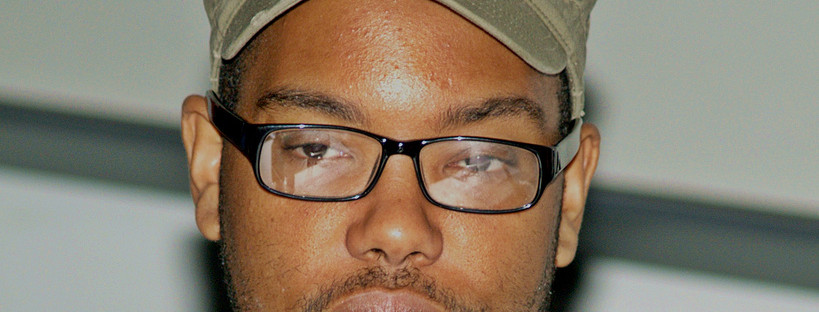
After a grand jury refused to prosecute Ferguson, MO police officer Darren Wilson for the August 2014 murder of Michael Brown, Ta-Nehisi Coates sat down to write a love letter to his teenage son. Between the World and Me is that letter: a concise, but detailed, account of the author’s experiences being black in the United States and France, at a historically black university in Washington, D.C. and a theater on the Upper West Side. The short memoir is a searing, melancholy treatise on 20th and 21st century relations between black men and white society in the US.
Since its publication in July, Between the World and Me has received pointed criticism from white reviewers, who hurl accusations of racism at Coates for what they perceive as sweeping generalizations in his indictment of white society. How dare he erase our individuality? they ask, indignant, ignoring the myriad ways — which Coates lays out — in which they, as both individuals and a group, make their own, deadly generalizations of young black men.
That the author refers to white Americans most often as “the people who think they are white” only fuels white supremacist ire. How dare he suggest that I am not white, that I am not who I say I am? they cry, ignorant of the fact that the history of white people is a series of new additions to an exclusive club: Italian, Irish, Jewish, and — occasionally — Hispanic folks.
Between the World and Me is an uncomfortable read for many white people. I consider myself a left-of-the-left liberal with a fairly progressive mindset, and even I found myself convicted by Coates’ assertion that the “Down Low” myth is used by theoretically progressive and anti-racist individuals to perpetuate the idea that black masculinity is so repressive that gay black men have to lead double lives. Obviously, this line of reasoning ignores the toxic masculinity that leads young white men to massacre schoolchildren, young couples, and women in movie theaters, as well as the centuries gay white men have spent bearding themselves in heterosexual relationships as a method of survival.
That I never questioned my assumptions about homosexuality in the black community is unsurprising, but it shook me. I, then, like most all people who believe they are white, have racist assumptions that I need to acknowledge and correct. When white people are confronted with our own prejudices, we have two options: to ignore, deny, and cry “reverse racism,” or to listen, realize, and work toward a change. Between the World and Me will lay the issue on the line in front of you. The choice, though, is yours to make.
My rating: 5 of 5 stars
Read all my reviews and follow me on Goodreads!
Image credit: David Shankbone/Flickr
